#john webster
Text



Colin Morgan as John Webster in The Killing Kind
#colin morgan#the killing kind#john webster#merlincastedit#humanscastedit#*cm#*gifs#*the killing kind#*jwebster
346 notes
·
View notes
Photo
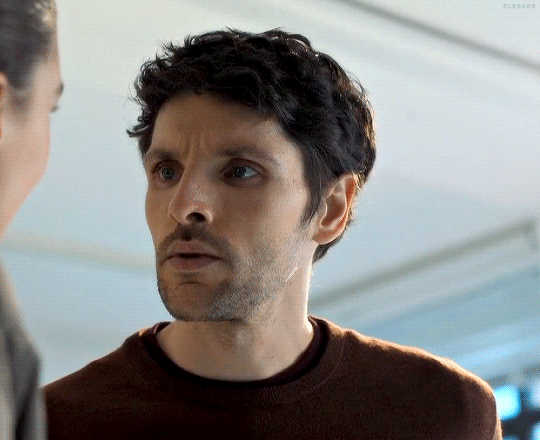
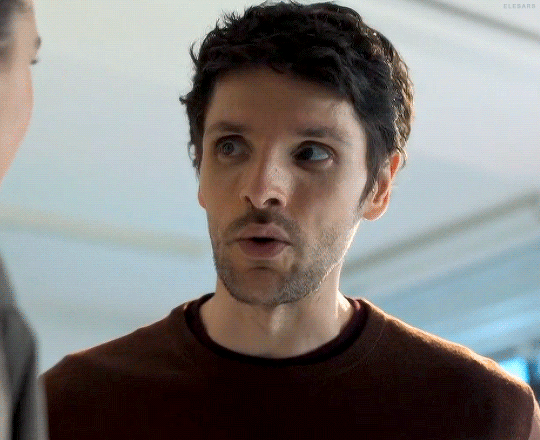
THE KILLING KIND
Season 1, Episode 4
#colin morgan#john webster#the killing kind#tvedit#smallscreensource#ee#gifs#colin#idk he just looks very handsome in this scene
136 notes
·
View notes
Text
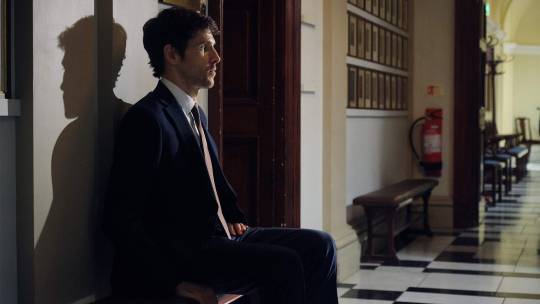
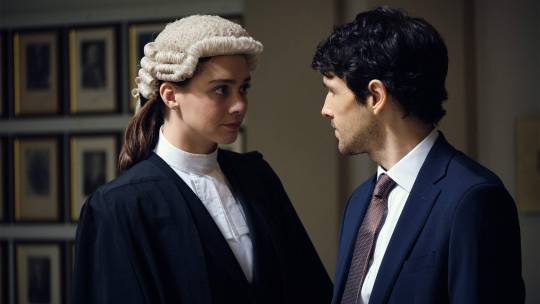
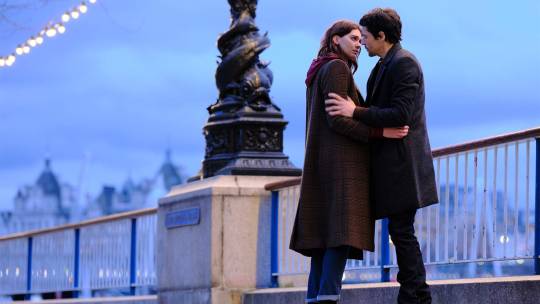




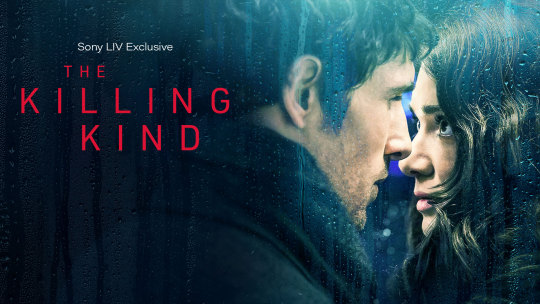
Some snippets from Colin in The Killing Kind - the series is now also streaming on SONY LIV
56 notes
·
View notes
Text
dontstandmedown replied to this post:
re:tags could you share the playwright you're talking about? :0
No problem! For others, the tags in question are this:
#thinking about this partly because the softer & gentler versions of fanfic discourse keep crossing my dash #and partly because i've written like 30 pages about a playwright i adore who was just not very good at 'original fiction' as we'd define it #both his major works are ... glorified rpf in our context but splendid tragedies in his #and the idea of categorizing /anything/ in that era by originality of conception rather than comedy/tragedy/etc would be buckwild
I am always delighted to share the good news of John Webster! If you're not familiar with him, he was an early seventeenth-century English playwright known for being a slow, painstaking, but reliable writer. He did various collaborations with other playwrights (and acknowledges a bunch of his peers in an author's note to The White Devil, including Jonson and Shakespeare) and wrote some middling plays in various genres that could be more or less termed "original fiction," but he's remembered for two brilliant, bloody tragedies.
The basic premises/plots of both of these were essentially ripped from the headlines of the previous century, and Webster makes zero attempt to conceal that fact.
I couldn't shut up about my guy so more under a cut!
The White Devil is based on the actual murder of Vittoria Accoramboni in the late sixteenth century and the characters in the play are generally given the same or similar names as the real life people in the story as known at the time, so there's no attempt to conceal the play's origins (the anti-heroine/villain???[debatable] is named Vittoria Corombona in the play, for instance).
The original production of The White Devil largely failed, which Webster blamed mainly on bad weather and an audience who just didn't get his ~vision and what he was trying to do. It would not be unsurprising for a contemporary audience to struggle with it given that it's a complicated play in which, among other things, Vittoria is put on trial and rhetorically shreds the underlying misogyny of the entire legal process.
The Duchess of Malfi, generally considered a still greater achievement, is based directly on the murder of Giovanna d'Aragona, Duchess of Amalfi by her brothers (it was presumed, likely correctly). Lope de Vega also wrote a play about this tragedy not long before Webster did, though the plays are very different and it's unlikely that Webster would have had the time or linguistic knowledge necessary to read Lope's version. Probably part of the reason for the differences between Lope's and Webster's takes is that Lope had to be careful about the reception by the Catholic Church given that one of the murderers was a cardinal, while obviously an English Protestant like Webster could say whatever he wanted about eeeeevil cardinals.
Webster takes a lot of artistic license, a normal approach at the time to adapting previously-established narratives, but the source material is very recognizable. One of the commendatory verses at the beginning of the play (blurbs in poetic form from other playwrights) is like "I'm sure the real duchess was cool but she couldn't be as cool as Webster's heroine, wow <3". (One of the other commendations is by another fave of mine, John Ford.)
Bosola, the historically mysterious minion of the Duchess's murderous brothers (=Bozolo in the historical narrative) gets an elaborate quasi-redemption arc in the play. And the play is extremely critical of various characters' obsession with and attempts to control the Duchess's sexual behavior (a fixation that is often extremely normalized in early modern British drama, but which comes off really badly here).
Ultimately this obsessiveness leads to her brothers, the Cardinal (=the historical Cardinal Luigi d'Aragona) and Ferdinand (=Carlo d'Aragona) orchestrating her torment and murder in which she emerges with her sanity and integrity intact and dies with dignity. Meanwhile, the Cardinal is exposed as a remorseless villain (he proceeds to murder his mistress with a Bible) and Ferdinand's already-shaky sanity snaps under the realization of what he's done.
Webster's Duchess is often considered the first real female tragic hero in British drama—the tragic is especially significant because tragedy was typically considered a higher art form than comedy and the truly great female characters from that era of drama are often restricted to comedies or secondary roles in tragedy (a marked trend in Shakespeare, for instance). The Duchess in the play is virtuous, strong-willed, witty, and fairly unabashedly sexual in the context of the time, a concept that several hundred years of critics have struggled with. (My favorite OTT complaint is from Martin Sampson, an early 20th century critic who lamented the conspicuous absence of a "strong active man, following righteous things" in Webster's work, to which I say l m a o.)
Anyway, among scholars of early modern British drama, Webster is often considered second only to Shakespeare as a tragedian, on the basis of those two plays. And the modern obsession w/ originality and novelty makes this kind of fascinating, given that his "original" work (in our sense—again, the original vs fanfic dichotomy was not a thing in that cultural context) is sort of meh but his work with pre-existing sources turns them into these staggering dramatic achievements.
#dontstandmedown#respuestas#renaissance blogging#john webster#the white devil#the duchess of malfi#anghraine's meta#ivory tower blogging#gender blogging#long post#i love vittoria and the duchess and also how pissy he is about people complaining about his slow writing#'yeah well that's what mediocre rapid content generators said to EURIPIDES and who do people remember now? THINK ABOUT IT'#okay okay i'll stop with My Guy but. he's pretty cool.
35 notes
·
View notes
Text
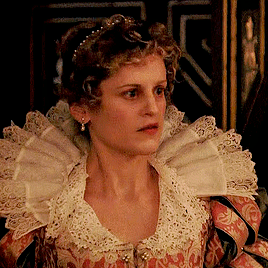
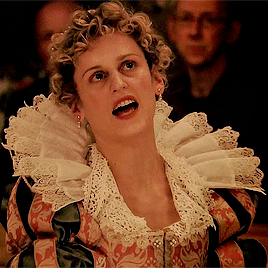

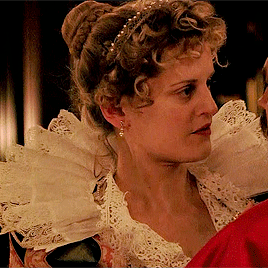
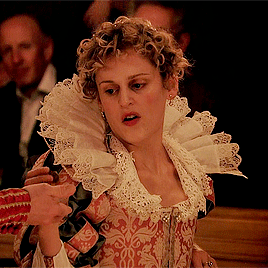


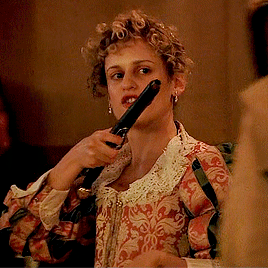
Denise Gough as Julia in The Duchess of Malfi (2014)
#The Duchess of Malfi#Denise Gough#Julia#DeniseGoughEdit#TheatreEdit#John Webster#Sam Wanamaker Playhouse#Shakespeare's Globe#gif#edit2#quality was not great i tried my best#densie gough kisses like she's getting drafted into the army in the morning
79 notes
·
View notes
Text

oh my fuck, he does know how to play an obsessive lover, doesn't he?
#You're fucking with us right now Colin#right? RIGHT??#colin morgan#merlin#john webster#bbc merlin#the killing kind
65 notes
·
View notes
Text


I KNEW Alyssa was lying when she said they're stopping at 4 🤣
94 notes
·
View notes
Text
youtube


#youtube#art#asmr sounds#asmr paper#dip pen#asmr relax#handwritten#asmr ambience#asmrcommunity#artist#john webster#John Webster quote
2 notes
·
View notes
Photo

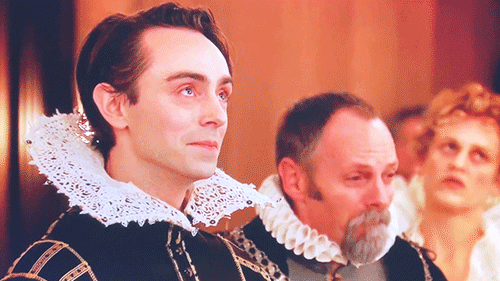

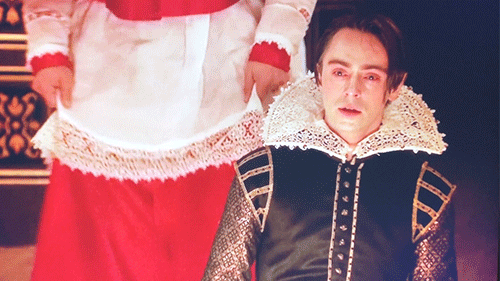




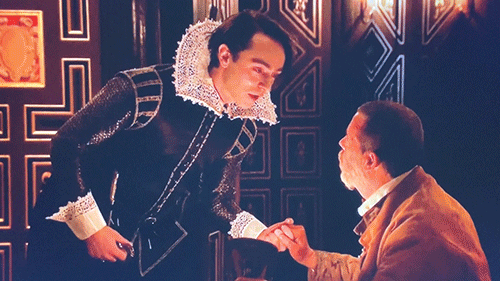
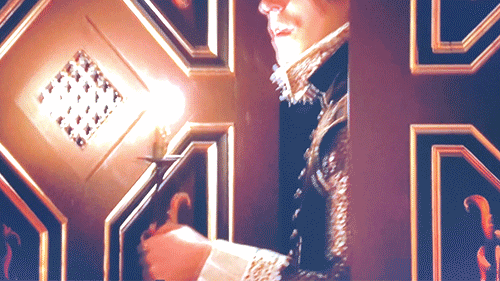
David Dawson as ‘Ferdinand, Duke of Calabria’ in “The Duchess of Malfi” by John Webster, performed at ‘Shakespeare’s Globe’
(Part 1 of... we’ll see)
I am blown away by David’s performance in this play. I have always been an avid admirer of fine acting and have enjoyed acting a lot myself. A character like that of Ferdinand with his rage and despair, his envy and madness has always seemed to me like one of the finest roles to play out there.
David delivered this part with a ferocity and fierceness that I think is hard to equal. Holy fucking shit what an actor! Why did I not stumble upon him before?!
(I do not like to create gifs where there’s talking, so a lot of his performance will be missing from these posts. But one of his scenes can be found on Youtube.
And access to watch the whole performance can be bought here.)
28 notes
·
View notes
Text
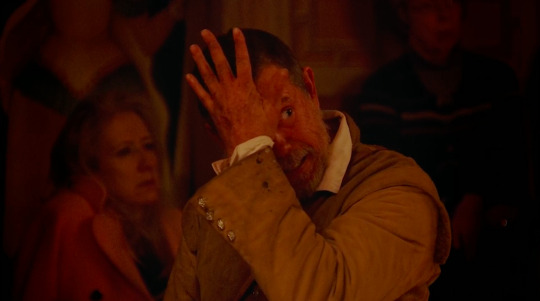

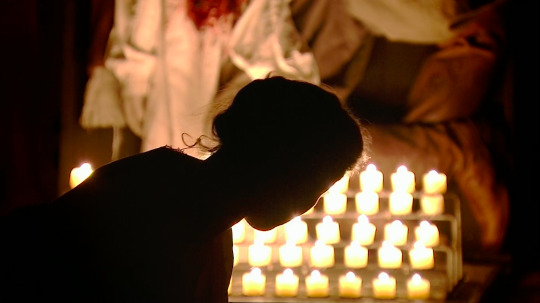






We are merely the stars' tennis balls, struck and bandied
Which way please them.
#it came to me and would not leave...#by me#the duchess of malfi#john webster#the duchess of malfi 2014#shakespeare's globe#theatre#webs#web weaving#quotes#words#writing#gemma arterton#david dawson
11 notes
·
View notes
Quote
You shall see me wind my tongue about his heart like a skein of silk.
John Webster, The Duchess of Malfi
42 notes
·
View notes
Text
On Homestuck's Character Deaths, Theatre, and the Ultimate Self
I'm listening to the Homestuck Made This World podcast and getting some really cool comparisons between Homestuck and the plays of Shakespeare's time, specifically on how they deal with onstage character death (they play with your expectations and your level of story immersion).
Apparently, in the original King Lear story, Cordelia doesn't die. Shakespeare writes her death into the end of the King Lear play, then has King Lear point at Cordelia's body and insist she isn't dead--which is true, in a way, because the actor isn't dead. (Can't not break that 4th wall when it's there for the breaking.)
Another point of interest comes up in John Webster's tragedy (I think it may be the Duchess of Malfi, but I haven't read it so I can't be sure). In the play, a character gives two men some orders and pistols. The two men betray the character who gave them the guns and shoot him--you watch him fall and think, 'he's dead'--but then the shot character rises back to his feet to tell them, "I was already aware of your betrayal, so I gave you theatre pistols" (paraphrasing here).
That makes me think of how Hussie's Author Character (not to be confused with the actual AUTHOR, capitalized for emphasis) dies in Homestuck. It makes me think about how Gamzee cannot die from Caliborn's gunfire. It makes me think about character deaths that don't stick, and about the subversion of audience expectations in how the story will progress.
It also got me thinking about how the Ultimate Self of a character is immortal through collective character narratives; because it doesn't matter if the individual iterations of the "Actor" dies in different variations of "The Play," the collective character still exists under the same name/actor. No matter how many Dirks die, "Dirk" as an existing character isn't truly dead. Whether existing outside the canon as a character with ongoing fanworks created about him, or existing within the canon's many invisible offshoot timelines and splintered/dead iterations, "Dirk" will be permanently preserved. Of course, the matter of how those disparate chunks come together--and which iteration ends up driving the Ultimate Definition of the Character--is a different story.
I think there's a comparison to be made with how actors will favor certain personality traits over others in their embodied interpretation of their assigned role. Having a different actor for the same character is going to result in two different iterations of the character. But even in day-to-day performances of the same character by the same actor, there are bound to be differences, maybe improvisations. So which iteration holds the Greatest Truth? Is a character the collective whole of all performances? Or is there one performance that went absolutely perfectly?
(This is not to be confused with the Conditional Immortality that comes with Godhood, which indicates that the character's importance is so great that they will not be able to exit canon unless it is with a narratively satisfying death.)
(It makes me sort of curious what John's canon exit would've been like without the Retcon, but maybe the point is that we never get to find that out?
Maybe paradox space rules (i.e. the AUTHOR's Intentions for the story) indicate this was always how Homestuck was supposed to end, and there was no other possible ending.
Or maybe Retcon trumps even paradox physics, and this is John (who is the 2nd person narrator the readers started with) achieving victory over the grueling narrative machine, complete with the AUTHOR's surrender to finally end the story by accepting that it will be fixed in stone in imperfection. (Because sometimes trying to finish a story in a satisfying way for the AUTHOR is a very different thing from what the readers would be satisfied with, or what external time limits force the ending to be. Maybe sometimes a serial creator has to accept that 'this is the ending I can manage at this time, and I don't think I can ask more of myself'.)
idk man I'm getting so many spinny thoughts abt homestuck it is incurable)
#homestuck#homestuck meta#dirk strider#john egbert#my thoughts#shakespeare#gamzee makara#caliborn#john webster#king lear#homestuck made this world#andrew hussie#ultimate self
55 notes
·
View notes
Text

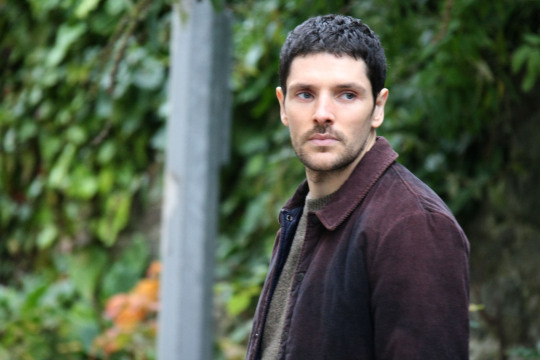


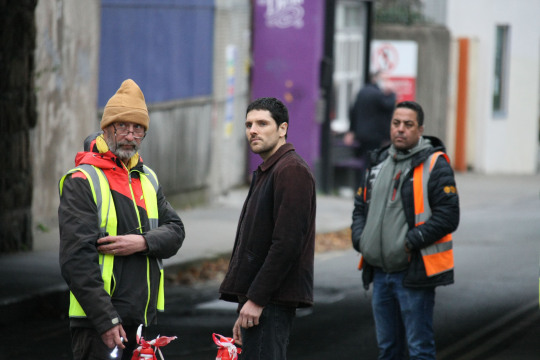
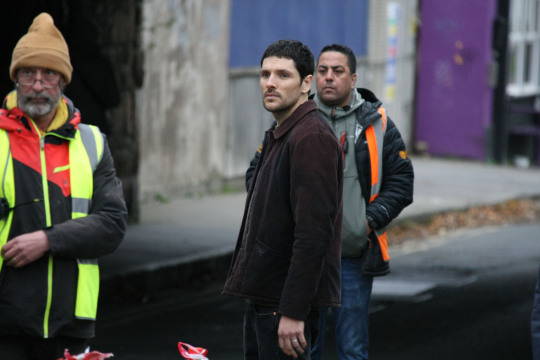
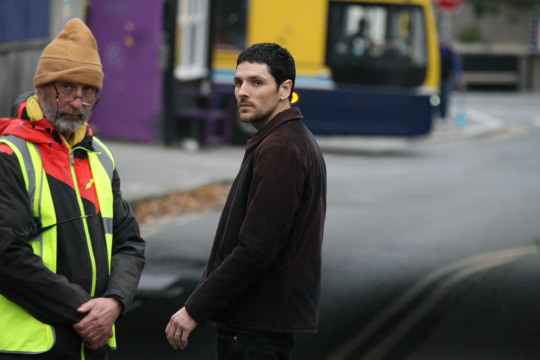

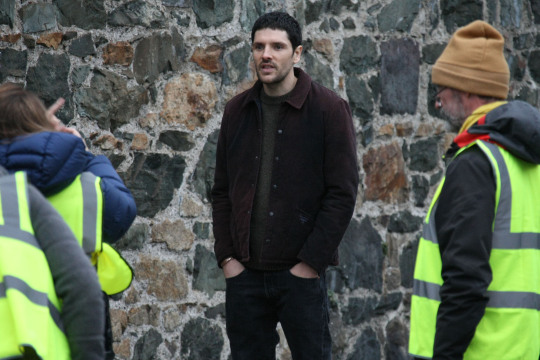

#colin morgan#kerr logan#the boy that never was#karen perry#bestseller#harry#john webster#the killing kind#merlin#humans#leo elster#the living and the dead#nathan appleby#mammals#jeff wilson
60 notes
·
View notes
Text
I should be working on my dissertation, and have been, but I thought it'd be fun (for me :P) to loop you all in somehow. Therefore I bring you a very silly poll!
*best means whatever it means to you; feel free to propagandize
**yes, I deliberately excluded Shakespeare (from the poll, not the dissertation, lol)
#anghraine babbles#poll nonsense#ivory tower blogging#dissertation hell#william wordsworth#john ford#daniel defoe#thomas middleton#john webster#samuel johnson#edmund spenser#samuel richardson#michel de montaigne#henry fielding#olaudah equiano#jonathan swift#renaissance blogging#(read: early modern blogging but i'm too lazy to change my original tag)#eighteenth century blogging#sixteenth century blogging#seventeenth century blogging
23 notes
·
View notes
Text
I'm only halfway through ep 3 and I'm so annoyed with Ingrid. Stop playing the "am I awful card?" when you know the answer. I don't blame her when she defended John at court, it was her job afterall. However, having an affair, hiding it and then directly pointing out the harrassment, not being honest with her ex fiance about her cheating... I get it she was hurt by him, but she also had enough time to come out clean. She only painted him as the cheater, when she was too. She went to Mark's mom house when I thought it was hers without permission it seems.
If you are scared which is understandable, stay with your friend for a while. Why do you have to go all alone to an isolated place?
And John looks like he is orchestrating everything. How come he is always there whenever Ingrid is in danger and was aware at the first place??? He is like a leech.
Colin is playing JW so well that I hate his character. Loved Emma Appleton too.
Update: I watched till the end and all my complains have been answered.
The show was interesting, kept me intrigued till the last second.
6 notes
·
View notes
Link
Emma Appleton (Clique, The Witcher) and Colin Morgan (Merlin, Mammals, Humans) have been cast in the lead roles of Paramount+’s The Killing Kind, an adaptation of Jane Casey’s novel of the same name.
The series centers on barrister Ingrid Lewis and the relationship she formed with former client John Webster, a man she defended in court against harassment and stalking accusations. After he turns on her when she tries to end things, Lewis begins rebuilding her life, only for Webster to reappear and threaten to unravel it yet again.
Appleton stars as Lewis, while Morgan plays Webster.
“Getting the opportunity to explore a more dark and complex role with John Webster has been enlightening and such fun,” Morgan said. “Working with the brilliant Emma Appleton has already been such a highlight, along with the rest of the incredible cast. The story had me hooked from page one, and I am looking forward to seeing it play out on screen.”
7 notes
·
View notes